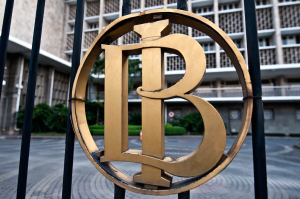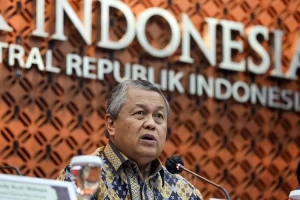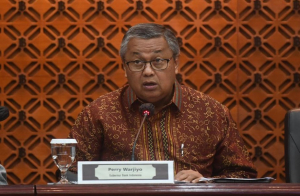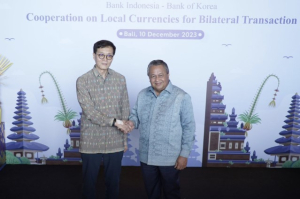Bank Indonesia pioneers green sukuk for global economic recovery
In an effort to support global economic recovery, the Indonesian Central Bank (BI) will maximize the use of sustainable market instruments in the form of green sukuk in the short-term sharia financial market.
BI Governor, Perry Warjiyo, said Indonesia is the largest green sukuk issuing country in the world and has won appreciation from many member countries of the Islamic Development Bank (IsDB).
He revealed three keys to develop green sukuk. First, commitment and building strong investment projects through the right partners, coordination of all stakeholders and massive socialization.
Second, establishing a clear green sukuk strategy and framework that is equipped with various political, policy and regulatory supports, as well as solid cooperation between countries through standard practices.
Third, issue sukuk to encourage monetary policy and money market development. These various efforts are also to support the stability of the value of the rupiah.
Currently, BI has issued Bank Indonesia Foreign Currency Sukuk (SUVBI) which can be used as a pro-market monetary instrument which can be a new alternative instrument for managing the liquidity of sharia financial players.
Previously, the government had issued green sukuk together with green bonds. After the issuance of global green sukuk, BI continued with the issuance of retail green sukuk in 2019.
Perry said that the issuance of this sukuk was aimed at supporting the financing of the state revenue and expenditure budget and funding various sustainable infrastructure projects.
"It is also hoped that this instrument will attract domestic government securities investors, especially those interested in the Islamic financial market," Perry said while addressing the 50th IsDB Annual Meeting in Riyadh, Saudi Arabia, on April 29, 2024.
Cumulatively, debt securities instruments have succeeded in raising total funds of US$6.9 billion in 2023. This total fund consists of global green sukuk worth US$5 billion, retail green sukuk worth Rp21.86 trillion, and green sukuk based on project worth Rp6.73 trillion.
The majority of these funds were raised in sustainable transportation sector, climate change resilience, and various sustainable water and wastewater management projects.
Tag
Already have an account? Sign In
-
Start reading
Freemium
-
Monthly Subscription
30% OFF$26.03
$37.19/MonthCancel anytime
This offer is open to all new subscribers!
Subscribe now -
Yearly Subscription
33% OFF$228.13
$340.5/YearCancel anytime
This offer is open to all new subscribers!
Subscribe now






